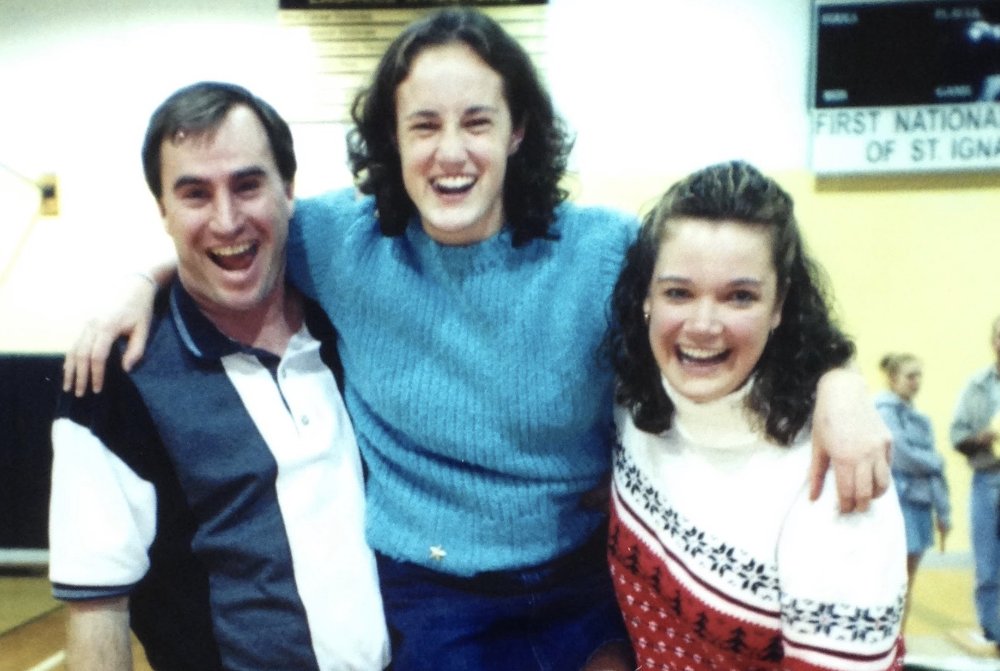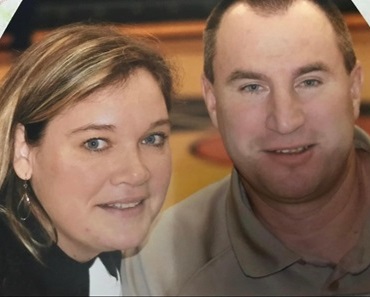
'Hearts' Focus Includes Action Planning
November 12, 2015
By Geoff Kimmerly
Second Half editor
As most of Michigan’s high school athletes move inside this month for the start of winter sports, many will take part in a program introduced to Michigan High School Athletic Association member schools this fall that assists coaches and students in preparing for the possibility of a health emergency during their after-school practices and events.
Prior to the start of this 2015-16 school year, the MHSAA sent every member school the “Anyone Can Save a Life” emergency action plan authored by the Minnesota State High School League and the Medtronic Foundation. The program instructs schools to assemble teams made up of coaches and their students that will act in the event someone suffers sudden cardiac arrest or another emergency medical situation.
“Anyone Can Save a Life” suggests a game plan that establishes four teams on every level of every sport in a school – a 911 Team, CPR (cardiopulmonary resuscitation) Team, AED (automated external defibrillator) Team and Heat Stroke Team. The groups are made up of coaches and their students who will be in close proximity to all after-school activities.
It’s another valuable tool as the MHSAA begins work on the fourth piece of its eight-year “4 H’s” health and safety emphasis. The next two school years focus on Hearts to go with efforts over the last six years centered on Health Histories, Heads and Heat issues faced by MHSAA athletes. This fall, for the first time, all varsity head coaches at MHSAA member schools were required to have CPR certification – another means by which athletic personnel can work to counter the random, unpredictable nature of sudden cardiac arrest.
“There is something we can do. We can be prepared. We can develop emergency plans, display AEDs and deliver CPR. And, like any good sports teams, we need to practice our preparations,” MHSAA Executive Director John E. “Jack” Roberts said. “’Anyone Can Save a Life’ can help schools revise or revitalize their existing emergency plans in ways that engage team members in planning, practice and execution. This could help save lives now and also convey important lifelong life-saving lessons to students involved on these teams.”
Students are a vital component to having a successful emergency action plan. They will be put in position to call 911, meet the ambulance at a pre-determined access point, locate the nearest AED, make sure immersion tubs are filled for hot-weather practices, and for those who are trained, to assist with CPR. Coaches identify students at the beginning of the season and prior to an emergency taking place, and provide them with the details of the job they are assigned so they will be ready to assist in the event of an emergency.
The “Anyone Can Save a Life” plan was sent to schools nationwide with assistance from the National Federation of State High School Associations and the NFHS Foundation. Click for information on "Anyone Can Save a Life."
“The ‘Anyone Can Save a Life’ initiative promotes the need to have and to practice planning for different kinds of emergencies,” Roberts said. “The result can be a fresh, comprehensive emphasis on preparing for emergencies well before they occur and then responding with more confidence when those emergencies inevitably happen. It is the perfect link between the last two years when we focused on heat illness and the next two years when we focus on sudden cardiac arrest.”
This fall’s focus on “Hearts” began in the wake of 122 Michigan schools receiving recognition this spring as HEARTSafe by the Michigan Department of Health and Human Services, Michigan Department of Education, American Heart Association, Michigan Alliance for Prevention of Sudden Cardiac Death of the Young and the MHSAA.
Public Act 12 of 2014 requires all schools (grades kindergarten to 12) to have a cardiac emergency response plan in place. This MI HEARTSafe School designation recognizes 122 schools that have taken steps above and beyond to prepare to respond in the event of a cardiac emergency, and is awarded for a period of three years.
In order for a school to receive MI HEARTSafe designation, it must perform at least one cardiac emergency response drill per year, have a written medical emergency response plan and team, have current CPR/AED certification of at least 10 percent of staff, have accessible, properly maintained and inspected AEDs with signs identifying their location, and ensure pre-participation sports screening of all student-athletes using the current physical and history form endorsed by the MHSAA.
Schools that meet all requirements are able to apply for the MI HEARTSafe School designation each year. Click for information and for a list of designated schools.

Ingalls Tops 500 Career Wins Leading St. Ignace Girls Hoops Program
By
Geoff Kimmerly
MHSAA.com senior editor
December 8, 2023
The St. Ignace girls basketball teams is off to a 2-0 start – and great starts and finishes certainly have been the norm over the last 25 seasons under the leadership of head coach Dorene Ingalls and her assistant, and husband, Doug.
Tuesday’s season-opening win over Brimley made Dorene Ingalls 500-94 beginning her 25th season guiding the program – now 501-94 after Thursday’s 63-27 victory over Boyne City. She entered this season 16th on the state list for most girls basketball coaching victories, and seventh among active coaches.
 For all 501 wins, Doug Ingalls has been by her side as an assistant within the program – while also serving as boys varsity basketball coach from 1992-2008, 2011-16 and again currently in the fifth season of his latest tenure. His Saints also have opened 2-0, and he has a 355-175 record leading the boys program.
For all 501 wins, Doug Ingalls has been by her side as an assistant within the program – while also serving as boys varsity basketball coach from 1992-2008, 2011-16 and again currently in the fifth season of his latest tenure. His Saints also have opened 2-0, and he has a 355-175 record leading the boys program.
The Ingalls have led the girls program to five MHSAA Finals championships, most recently in Class D in 2015, and four runner-up finishes, most recently in Division 4 in 2019.
Dorene Ingalls received the MHSAA Women In Sports Leadership Award in 2021.
PHOTOS (Top) Doug and Dorene Ingalls, far left and right, respectively, take a photo with 2003 Miss Basketball Krista Clement. (Middle) Dorene and Doug Ingalls. (Photos by David Latva.)

